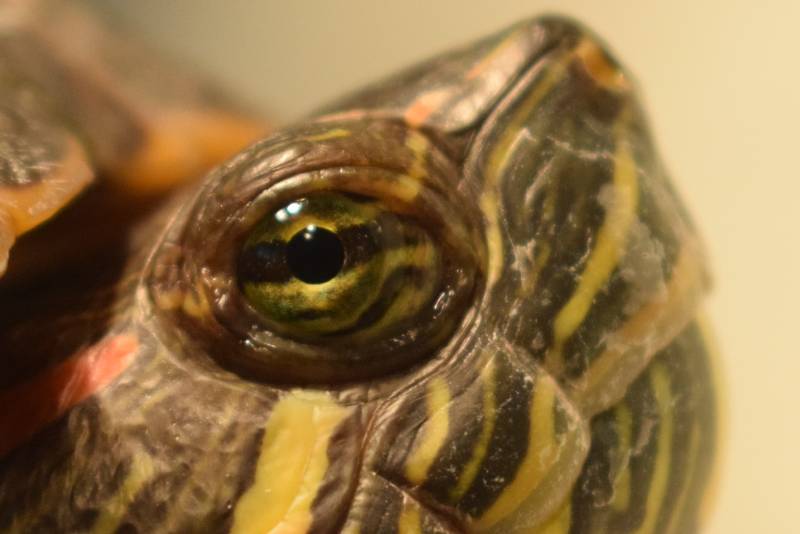VET APPROVED

The information is current and up-to-date in accordance with the latest veterinarian research.
Learn more »It is impossible to see through another animal’s eyes. That makes it hard to say what exactly animals see. Do they see like humans? Are they colorblind? These are common questions that people ask when they are curious, especially about their pets. That raises the question of whether turtles can see color. Interestingly enough, science has come a long way recently in decoding the eyes and vision of animals. It turns out that turtles can see color, and they can see color very well.

Yes, Turtles Can See Color
Turtles can see colors. In fact, turtles can see more colors than humans can. Turtles are speculated to have a wider range of color vision than humans due to a specific gene. This gene seems to have emerged over 250 million years ago and gives turtles a broad range of vision. Turtles are by no means color-blind. They are tetrachromats.
Turtles are speculated to be able to see green, yellow, and red very vividly, and they can see most colors more clearly than mammals like humans.

What Science Says
The science of turtle vision is both interesting and ancient. Turtles have a very long evolutionary history, and their history links them with dinosaurs and birds. Turtles have a specific gene that broadens their color vision. There have been numerous studies done on turtles, their genetics, and their eyes, which have led to better information regarding their vision.
Turtles Are Tetrachromats (They Can See Color Better Than People)
Turtles are tetrachromats, which means they have four separate channels that allow them to process colors. Humans are trichromats, meaning we only have three channels to see colors. The ability to see colors is linked to the cone cells (photoreceptors) found in the eyes. Humans only have three types of cones, while turtles (and other tetrachromats) have four types of cones. This extra set of cones gives turtles the ability to see an entirely different wavelength of colors that humans cannot.
Turtles are tetrachromats in part due to the presence of a gene known as CYP2J19. This gene is 250 million years old and links turtles to a common ancestor to birds and other reptiles known as archosaurs. Archosaurs passed on CYP2J19, which gives animals the ability to see four channels of color instead of three.

Turtle Vision Is Heavily Linked to Bird Vision
Turtles may have very similar vision to birds because they are linked by the CYP2J19 gene. Forbes puts it this way:
“The gene responsible for red coloration and color vision in birds is also functional in turtles — having arisen in a shared ancestor where it was probably used for color vision and possibly also for red coloration more than 250 million years ago.”
This gene adds red pigments to the cones in turtle eyes which allow them to have enhanced color vision compared to animals with trichromatic vision.

Conclusion
Turtles can absolutely see color, and they likely see more colors than you can. Turtles are tetrachromats, which means they see colors with an additional wavelength due to their complex cone system and a specific gene that goes back millions of years.
Featured Image Credit: Tony Moran, Shutterstock










